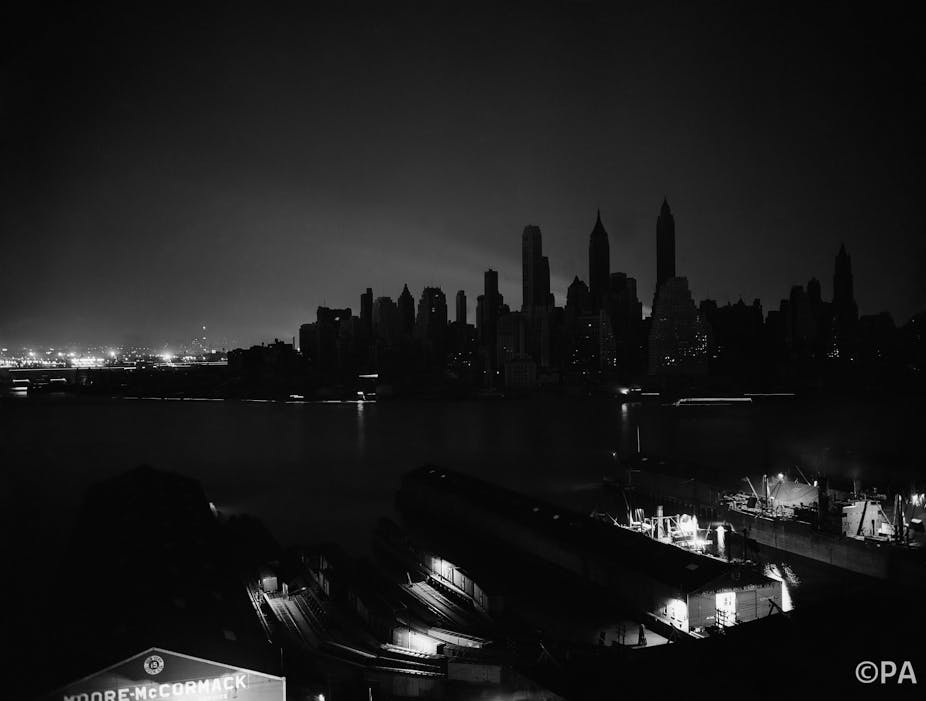To anyone following recent discussions about the UK’s energy sector, it might seem the nation is entirely lighting-obsessed.
When announcing the deal that paved the way for a new nuclear power station at Hinkley Point, the energy secretary, Ed Davey, explained that it was “essential to keep the lights on”, echoing earlier claims that energy reforms will “keep the lights on and emissions down”.
Meanwhile, Ed Miliband’s announcement last month that a Labour government would freeze gas and electricity bills led energy companies to warn that “they might not be able to keep the lights on”. Why is the rhetoric of “keeping the lights on” so important and why is lighting such a compelling and such a persistent point of reference?
Part of the answer has to do with what happens should the lights actually go out. As those cut off in the wake of the St Jude’s Day storm will be only too aware, blackouts are immensely disruptive. Even small-scale interruptions demonstrate how dependent our society has become on a reliable electricity supply. In this context, regular or prolonged outages would indicate that the government had failed to maintain basic standards of living.
Files released this summer show that during the miners’ strikes in the early 1980s Margaret Thatcher contemplated using the military to help keep the lights on: a plan that clearly signalled the symbolic and actual significance of power. Then, as now, talk about the importance of keeping the lights on provides a chilling reminder to governments of how vulnerable they are when faced with a total breakdown of energy generation and supply.
But in the present context, the rhetoric of “keeping the lights on” is as misleading as it is compelling. Though there are billions of lights in the UK’s homes and in places of work and recreation, these are never on all at the same time. Many are off for a large part of the day and in any case lighting does not account for a very high percentage of energy use. Lighting is undoubtedly useful, but for some people it’s not the lights but the internet and communication systems that really need to be on.
In corporate talk, the phrase has been adopted to highlight the percentage of a company’s expenditure spent on keeping its information technology infrastructure running – the blinking lights of networking equipment, rather than overhead lights. This dependence runs deep: in the aftermath of hurricane Sandy in 2012, people walked miles to charge their phones – an indication of how thoroughly such communication devices had been embedded in their daily lives.
Reference to dramatic instances in which all power is lost obscures the fact that the real discussion is not about power cuts, nor is it about the lights alone. Instead, the critical questions –- questions that this “lights on” rhetoric systematically avoids -– are to do with energy demand: what is energy for, how do energy demands arise and how do they change?
These ought to be central concerns for energy policy, especially given the challenge of meeting CO2 emissions targets, yet the “keeping the lights on” mantra perpetuates an unquestioned reliance upon electric power, reinforcing the view that energy consumption is non-negotiable and that it lies outside and not within the frame of legitimate policy debate. In effect, the phrase has come to symbolise a right to unlimited power; it suggests that as a nation there is no end to what we can consume.
There is no such thing as an unlimited energy supply. At every level, from the individual home to the grid itself, cables and infrastructures are sized and managed with certain patterns of demand in mind. Behind the scenes, the need for power is, and always has been, a topic of ongoing negotiation.
Instead of blindly insisting on the importance of keeping the lights on (and all that the phrase stands for) the real political challenge is to bring questions of demand into view. This is not just a matter of technological efficiency. What is needed is a fundamental debate about how much energy is enough, what does it mean to establish ways of living that call for much less power than we use today, and just how many lights could or should be kept on?

